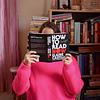Take a photo of a barcode or cover
First things first is the rampant homophobia and transphobia. Early on in the narrative, the author befriends Chablis, a trans woman, but is kind of afraid of her because he finds her attractive. He also never takes anything Chablis says or does seriously, seemingly maintaining friendship with her just to scandalize everyone he knows and have someone "unusual" to write about. As for the homophobia - it is continuous throughout the book, waxing and waning in its severity, with hate crimes being casually discussed and the f-slur being used repeatedly by the characters.
The second problem is the treatment of all Black people featured in this book. Berendt describes Black people that he meets as curiosities, taking a creepy anthropological approach. It's incredibly dehumanizing. Outside of Berendt himself, the people that he gets to know best over the course of his time in Savannah are very bigoted. For instance, the heavily-featured character Joe Odom loves to drop the n-word. Odom's racism is the most overt but there is quite a lot more covert racism throughout. Often, the high society of Savannah seems to be surprised that Black people who don't serve them even exist!
The third problem with this book is its entire elitist approach. Berendt is cashing in on people's very real lives in a way that ultimately paints him as above it all. Everyone is two-dimensional. Clearly, Berendt enjoys merely collecting folks in his life for their writability. As the story progresses, it begins to feel more and more like a mocking story told over drinks at a bougie New York party. (Berendt is from NY). I can see him saying "You wouldn't believe all these wealthy Southerners and their odd habits. Or the crazy gay people I met! Isn't the South so quirky and bizarre? Isn't bigoted behavior & conversation just so quirky and fun?"
Graphic: Gun violence, Homophobia, Racial slurs, Racism, Transphobia, Murder, Classism
Moderate: Hate crime, Toxic relationship, Violence, Religious bigotry, Outing
Graphic: Death, Murder
Moderate: Racism, Suicidal thoughts, Toxic relationship, Transphobia, Alcohol
Minor: Death of parent
It bothers me to no end that it’s considered nonfiction but the exact events as described in the book didn’t happen exactly that way. It’s written in an engaging way, so perhaps Berendt felt that altering the timeline and making up conversations that kept to the spirit of the characters/story was the way to go…but in this day and age of fact having varying definitions, I can’t deal with it.
As a southerner, though not from Georgia, it certainly captures some old fashioned ideas of what it means to be southern and “polite.” It feels very familiar in that way, particularly as this took place in the 80s and was written in the 90s. I grew up with these people. Savannah is unique, there’s no doubting that, but still the southern status quo feels a little universal. Also, it’s problematic AF. It’s almost funny how problematic it is and thinking of how long it was on the best seller list. The reach this book got. Whew. Just affirming racism, sexism, homophobia, and transphobia (though it seems like Berendt did like Chablis). For better or worse, this is a product of it’s time. I rather dislike how much I loved this book at such an impressionable age.
For these reasons, I’d have difficulty suggesting it to someone whole heartedly unless they were very interested in Savannah and/or murder trials.
Graphic: Homophobia, Racism, Transphobia
Moderate: Murder
Moderate: Homophobia, Racial slurs, Racism, Transphobia
Minor: Gun violence
Graphic: Gun violence, Murder
Moderate: Racial slurs, Racism, Transphobia
Graphic: Gun violence, Homophobia, Transphobia, Murder
Moderate: Racial slurs, Racism, Sexual content, Alcohol
Minor: Slavery
Graphic: Alcoholism, Death, Drug use, Gun violence, Homophobia, Mental illness, Misogyny, Physical abuse, Racial slurs, Racism, Sexism, Sexual content, Transphobia, Murder, Alcohol
Moderate: Sexism, Suicide, Antisemitism, Car accident, Suicide attempt
Minor: Gun violence
Moderate: Addiction, Death, Drug abuse, Drug use, Gun violence, Homophobia, Racial slurs, Racism, Toxic relationship, Transphobia, Violence, Murder






